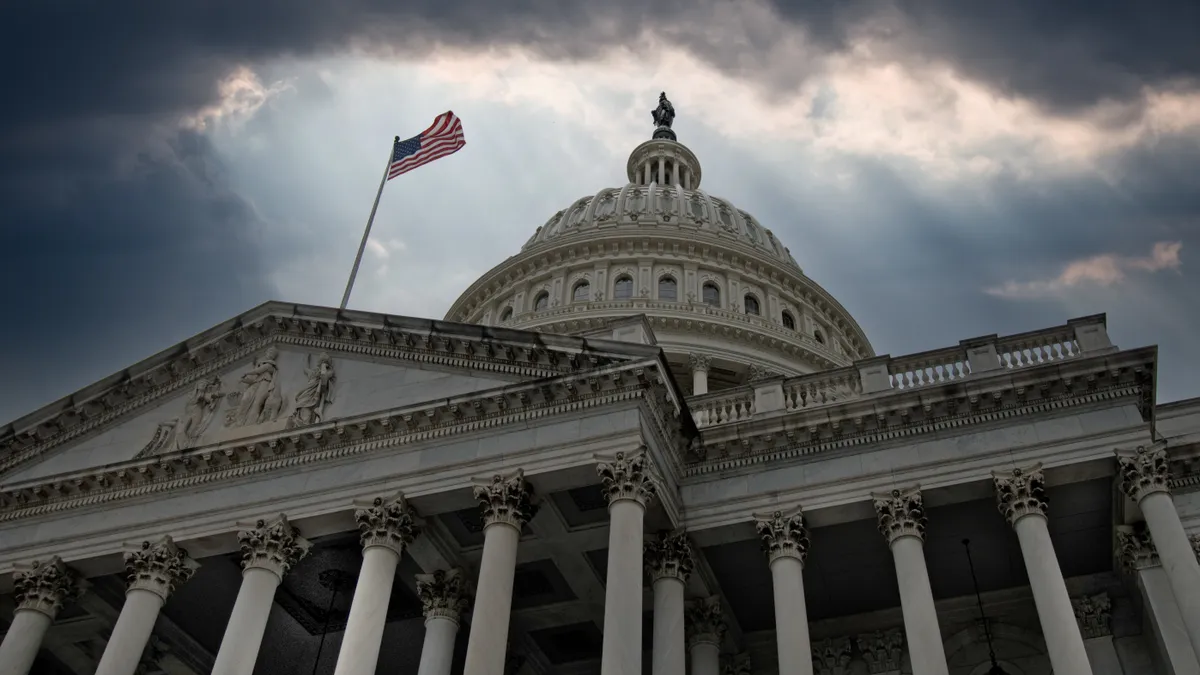The Senate voted Wednesday, by a 53-44 tally, to repeal the Consumer Financial Protection Bureau’s small-business data collection rule.
The rule, issued in March, has drawn criticism over the specific pieces of information it seeks to collect from small-business owners when they apply for loans.
Proponents have said the details, which include geographic and demographic information on the borrowers and the price of credit, would help fight unlawful discrimination. But detractors have denounced the data collection as intrusive.
“The CFPB has propagated a rule that totally perverts our intention of section 1071 of the Dodd Frank Act,” Sen. John Kennedy, R-LA, said Wednesday on the Senate floor. “They took our 13 pieces of information that we asked for, and they have expanded it to 81. All of a sudden, they want a book.”
Kennedy in June introduced the resolution to repeal the CFPB rule via the Congressional Review Act.
Kennedy said he takes issue not just with the amount of information collected but the nature of it.
“The CFPB says it’s going to be institutional-level data — just top-line data fields. Bull!” he told the Senate on Wednesday. “They’re going to publish it on their website: Are you gay? Are you lesbian? What race are you? … And snoops will be able to go on that website and identify small business people in their community.”
Republicans cast the vast majority of votes to repeal the CFPB rule, though three Democrats — Jon Tester of Montana, John Hickenlooper of Colorado and Joe Manchin of West Virginia — also voted in favor, as did two independents — Kyrsten Sinema of Arizona and Angus King of Maine — who caucus with Democrats.
Contrary to Kennedy’s assertion, Sen. Sherrod Brown, D-OH, countered that borrowers can decline to submit the information if they wish.
“With this data, we’ll be able to see gaps in the small-business lending market — allowing programs to expand access to credit for small businesses,” Brown said Wednesday. “More data means more accountability — ensuring that lenders reach minority communities.”
Wednesday’s vote sends the challenge to the CFPB rule to the House, where a vote is not expected in the short term because of a leadership vacuum. Rep. Jim Jordan, R-OH, on Wednesday fell short in his second attempt to garner enough votes to assume a role as speaker of the House. The chamber has been without a permanent figurehead since Oct. 3, when hard-line conservatives led an ouster of Rep. Kevin McCarthy, R-CA.
Lawmakers are not the only ones to issue challenges to the CFPB’s data collection rule. McAllen, Texas-based Rio Bank and Texas Bankers Association filed a complaint in court in April against the CFPB, alleging the rule will hinder lending to nonwhite- and women-owned businesses.
A federal judge in July ruled that not all lenders need to obey the CFPB rule while the Supreme Court weighs in on the constitutionality of the agency’s funding.
Rep. Roger Williams, R-TX, has introduced a resolution in the House to nullify the CFPB rule. But it faces stiff resistance. The White House has said President Joe Biden would not sign off on this particular challenge that leans on the Congressional Review Act. And Republicans likely don’t have enough votes to overrule it.














